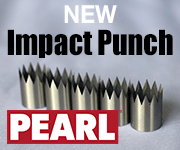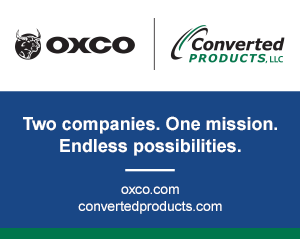Label PRomotion | Label Errors Generate PR—But Not the Kind You Want
- Published: September 04, 2013
There’s an old adage that any PR is good PR—that exposure is valuable regardless of the reasons. I beg to differ, especially when the PR emanates from label typos and mistakes.
Screwups are a standard source of delight on everything from TV shows to social media. Jay Leno does a weekly segment called “Headlines,” which consists of articles, ads, and other writings that contain egregious errors. While the offending party is often hidden, it’s a safe bet that they’d rather stay that way.
Label errors generally fall into one of two categories:
- Spelling/grammar gaffes
- Informational inaccuracies
The first serves to undermine credibility. Users seeing label mistakes may become uneasy about quality of the product itself. Reasoning goes along the lines of, “If their label isn’t error-free, how can I trust that their product will be?”
While embarrassing and potentially damaging to reputation, the first issue pales in comparison to potential impact of the second. Inaccuracies involving ingredients, dosage, administration, and other information describing product content and usage can threaten health—not to mention the extremely negative buzz that accrues when the errors are revealed. For these reasons, nutritional supplements and medications warrant particularly close scrutiny.
Increasingly, as counterfeit drugs appear in the healthcare mainstream, there is heightened awareness of typos as a warning signal. So, even if a product is legit, the mere appearance of typos may trigger concerns about counterfeiting, in turn irreparably damaging a company’s reputation.
This recent NPR post addresses the growing problem: A shortage of Adderall began last year, sending millions of people with attention deficit/hyperactivity disorder and narcolepsy on perpetual wild goose chases to find drugstores with the pills they need to stay alert and focused. So it's not surprising that Adderall counterfeiters have seized a big marketing opportunity. What is surprising is their clumsiness. The Food and Drug Administration says fake Adderall pills are easy to spot…packaging of the counterfeit pills is riddled with typos and misspellings—‘aspartrte’ instead of ‘aspartate,’ and ‘singel’ instead of ‘single.’
How can you work to ensure error-free labels?
• Many eyes, many views. Labels should be an integral part of product quality and marketing, not an after-thought. Based on the number of errors that occur routinely, it’s obvious that too many companies aren’t keeping an eye on this important ball.
Think you’re immune? These real-life examples prove how easy, and costly, it can be to make a mistake in print. Even stellar-looking labels can be tarnished by a typo. Such was the case of the missing “l” in the word Belgian as called out on beeradvocate.com. The writer discussed how he’d been anxiously awaiting the release of a Belgian Ale, but the experience left a bad taste when he discovered “Belgian” was spelled “Begian” on what he called “the coolest screen printed labels.”
Another ale typo proved very costly, with one missing letter leading to a half-million-dollar loss for a seller and a like gain for the buyer. Mentalfloss.com addresses, “The Case of the Antique Ale…A missing ‘P’ cost one sloppy (and we’d have to surmise ill-informed) eBay seller more than half-a-mill on the 150-year-old beer he was auctioning. Few collectors knew a bottle of Allsopp’s Arctic Ale was up for bid, because it was listed as a bottle of Allsop’s Arctic Ale. One eagle-eyed bidder hit a payday of Antiques Roadshow proportions when he came across the rare booze, purchased it for $304, then immediately re-sold it for $503,300.”
• Make sure people in the know check and recheck “technical specifications,” such as dosing listed on their labels. This is vitally important and an easy area for problems. And it’s not always the fine print that causes the problem.
Case in point: Blog.usfoodsafety.com reported on a nationwide aspirin recall due to mislabeling. A complaint alleged that a bottle labeled as Enteric Coated Aspirin Tablets 81 mg, actually contained Acetaminophen 500 mg tablets.
In an era where one typo can go viral in a matter of minutes, spending extra time and diligence to make sure labels are correct can save a lot of time and money needed to deal with a damaged reputation.
 Mark Lusky is president of Lusky Enterprises Inc., a marketing communications and content development company. Since 2008, he has worked with Lightning Labels, a Denver-based all-digital custom label printing company, as a content developer specializing in expert advice articles. Lusky presents common-sense ideas grounded in doing what’s real and right for managing and enhancing public image.
Mark Lusky is president of Lusky Enterprises Inc., a marketing communications and content development company. Since 2008, he has worked with Lightning Labels, a Denver-based all-digital custom label printing company, as a content developer specializing in expert advice articles. Lusky presents common-sense ideas grounded in doing what’s real and right for managing and enhancing public image.










